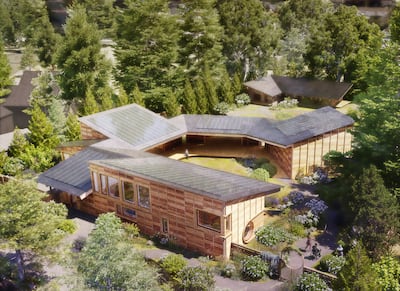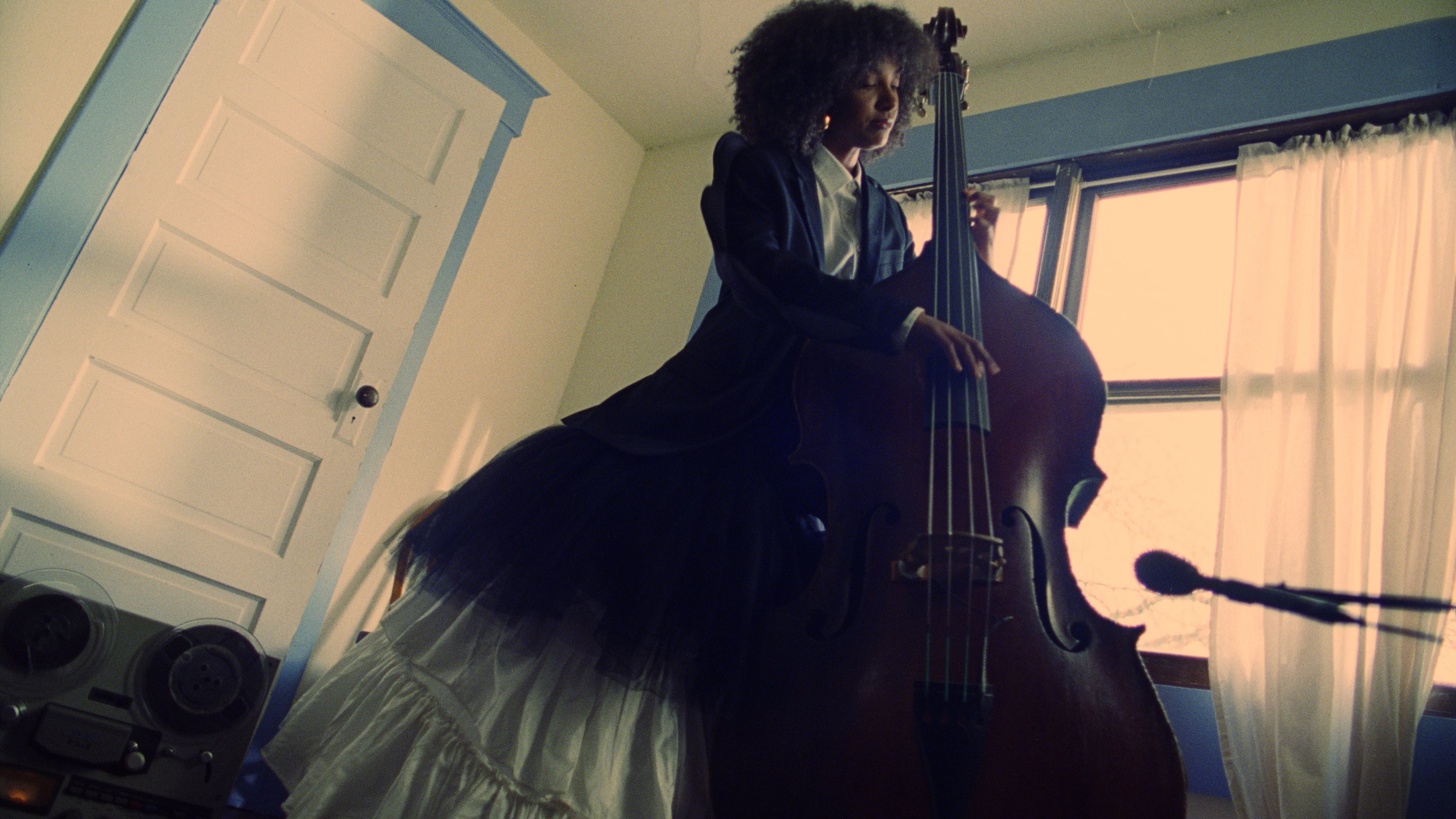Being the first-ever jazz musician to win the Grammy for Best New Artist would be an albatross for most artists. For Esperanza Spalding, the accolades that seem to attach themselves to her wherever she goes have only freed her up to lead a wildly unpredictable and satisfying career, from teaching a course at Harvard from 2017 to 2022 to releasing an entire album (Exposure) recorded in 77 hours via livestream. Her most recent album, last year’s milton+esperanza, is a full-length collaboration with octogenarian Brazilian pop legend Milton Nascimento; it picked up a Grammy nod, but when Nascimento wasn’t invited to the ceremony, Spalding protested by bringing a cutout of the artist as her “date.”
After over a decade living in New York City, Spalding returned to Portland in 2020 and has been giving back to the community by developing the Prismid Sanctuary art space in St. Johns, of which she now serves as co-director. Spalding raised over $350,000 in crowdfunded donations to purchase the 0.74-acre site, anchored by a 111-year-old farmhouse, in 2021. Now the space is about to undergo a major revamp, with plans to build a dance studio, an organic garden, an amphitheater, and other venues for BIPOC creators to develop and perform their projects. Spalding is funding it by composing seven personalized suites over a seven-month period for seven donors who contribute $777,777 or more, each one pressed on a one-of-a-kind vinyl record, with the aim of raising $3.5 million for the desired renovation. (The number seven has long been important to Spalding, who learned of its spiritual significance after an encounter with a preacher in a hotel elevator many years ago.)
WW spoke to Spalding about Prismid, her new set of suites, and other recent developments in her illustrious career.
WW: What does Prismid look like right now?
Esperanza Spalding: It’s a three-quarter-of-an-acre space with a two-bedroom farmhouse on it. In the farmhouse, we hold indoor programming workshops or gym sessions, or we workshop with master weavers from the region. All of our programming and space use is free for the BIPOC arts community, so in the upper rooms we have the best we can approximate of a short-term artist residency. We call it the Weekend Writing Retreat. In one of the rooms we have someone who comes every week and does somatic body work sessions.
Everything else is outdoor programming. We have a lot of cover crops and herbs and flowers and berries, and we have some native plant habitats. People hold classes, gatherings. Somebody’s coming to do a meditation series later this summer. It’s a very active place.
You left your position at Harvard because the university was unwilling to move forward with your proposed Black Artist-Educators Decolonizing and Placemaking initiative. Did any of what you proposed or learned at Harvard translate to Prismid?
First, I have to say I had a great experience at Harvard. I proposed a program to Harvard because I’d done five years and I was offered another contract for five years. But I had been hearing about all this incredible work at Harvard of taking real inventory of Harvard’s relationship to slavery and hearing about works to build reconciliation with Indigenous communities in the region. So I said, if I’m going to teach here, I need my work to be in service of those initiatives. I was also aware that initiatives like that don’t have any teeth unless they are rooted in the return of land and resources.
The feedback I was getting was, “Please make this course, we want to support it.” So I did, and I realized it was a similar vision to what I wanted to do with Prismid. After about a year and a half, I was told very abruptly, “We can’t support that.” And so I decided to not renew my contract and pour the energy I would’ve poured into that program into Prismid. I don’t have any bitter feelings. The internal message I sent to my department got picked up by a student newspaper at Harvard without my consent, so that was never intended to be public-facing. I wasn’t trying to make some big statement about Harvard, I was just telling them why I was leaving.
Tell me about the suites you’re composing for donors. You seem to work well in a constrained environment, like when you made Exposure in just 77 hours on livestream. What do these constraints do for your music?
I like a good container within which you try to get as expansive and creative as humanly or transhumanly possible. But also, we’re on a timeline here, we need to get the rest of these funds in by December. There’s also the practical aspect of being one human who will be creating these things myself, and so I recognize that I can do about one per month. I also wanted anybody who commissions one of these suites to feel how special it is.
We’re entering the season where I was going to have to go meet a bunch of people and make the [fundraising] pitch. Convince people. That doesn’t feel authentic to me as an artist. I would rather invite people to come support the sanctuary and then get to do something that’s reciprocal. I don’t want to just sit across the table from somebody and tell them why they should support Prismid. I want to create something that feels valuable and meaningful to them, and in exchange they contribute to something that’s profoundly valuable and meaningful to me.

I feel like a lot of people undervalue music in the streaming era because you can just play a playlist in the background, like it’s a lifestyle accoutrement instead of something that requires effort to make and engage with.
Thank you for naming that because I also like what it does for helping us remember the value that goes into creating music. In the visual arts, I feel there’s more acknowledgment of the intellectual and physical labor that goes into producing these valuable works. But because music is so easily accessible, I feel like the emotional, intellectual and physical labor that goes into music is forgotten. So I hope, as more people come to commission this, we’re also setting a precedent of “this is what an album for me is worth,” if you commission me to do an album for you that’s personalized for you, in the way that a painting would exist in your collection.

